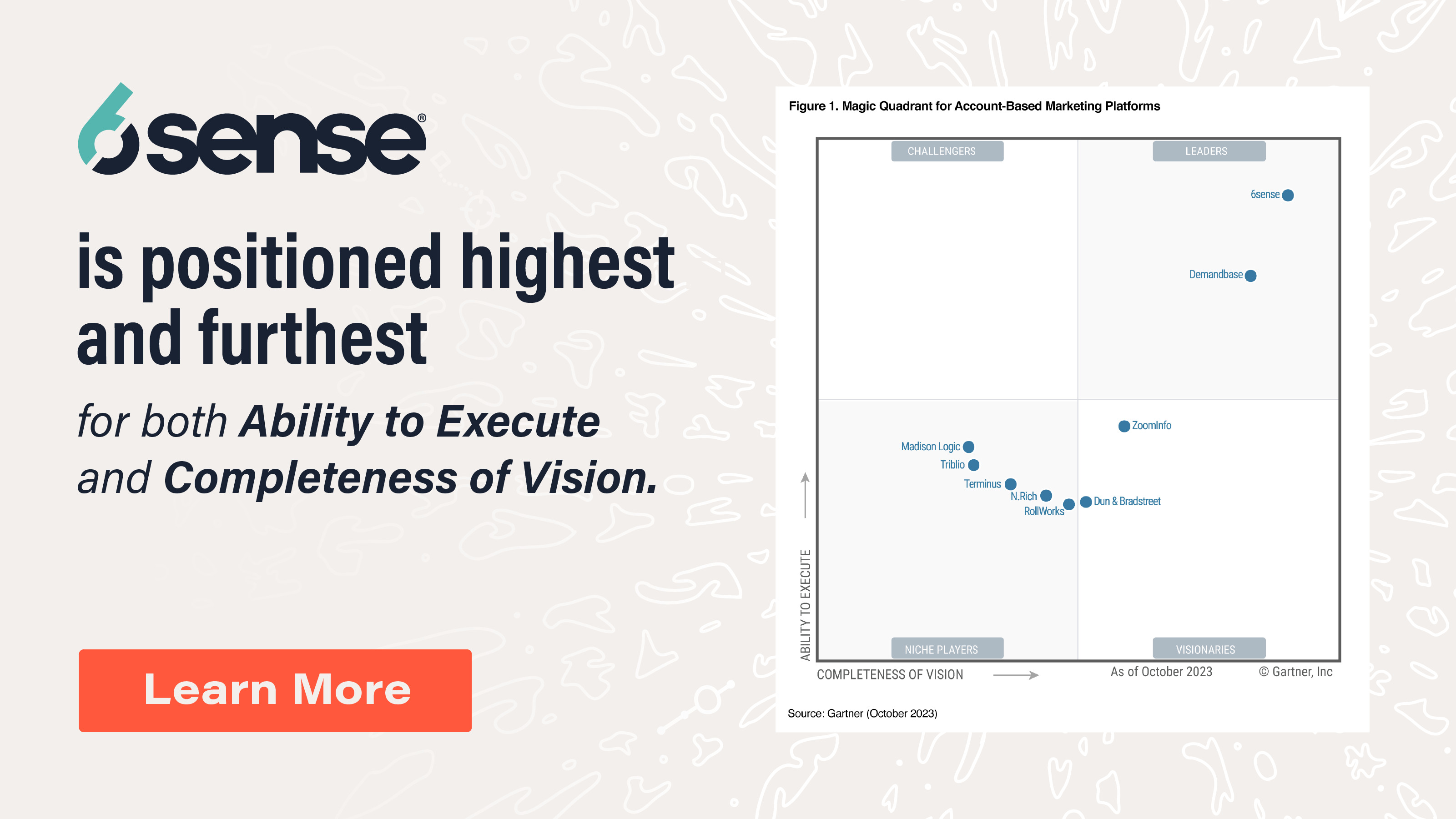Sellers spend most of their time not selling — 72% to be exact.
Instead of focusing on moving buyers through their journeys, connecting with key contacts at an account, or searching for upsell opportunities at an existing account, sellers are stuck:
- Manually updating CRMs and SEPs
- Hunting through LinkedIn for prospects
- Trying to prioritize their activities
- Reaching out to buyers that aren’t in-market
A lot of this wasted time is due to mountains of inactionable data or lack of insights about their buyers.
What sellers need more than information is intelligence.
Sales intelligence is the distillation of data into actionable insights that make it possible for sellers to focus more on what they do best — selling.
Sales intelligence gives sellers the insights they need to:
- Prioritize the accounts they should be targeting
- Uncover key personas and their information
- Create personalized presentations and campaigns for the right buyers
Here’s how sales intelligence can flip the script on a seller’s day by empowering them to spend more time actually selling.
Prioritized Prospecting
One of the hardest parts of any seller’s job is deciding where to focus their efforts. With a target account list that can number in the hundreds, how does a seller prioritize their outreach?
Without any insights into their accounts besides the basics — company size, number of employees, locations — they’re taking a shot in the dark when they start cold calling or emailing.
Sellers try to overcome this problem by scouring LinkedIn for job titles within target accounts and clues that might indicate interest, then trying to hunt down contact information and crafting “personalized” outreach based on their limited findings.
This process is incredibly time-consuming. Nearly 10% of a seller’s time is spent researching prospects.
Sales intelligence relieves sellers of this burden by providing them the information they need to start selling.
With a sales intelligence platform sellers can know:
- Which accounts are performing activities and research indicating they’re currently seeking solutions like yours
- Which accounts are closest to making a decision
- Which personas comprise the buying team
They can then quickly begin outbound motions to the personas most likely to respond.
Deeper Insights into Accounts
Some of the intelligence sellers gain in just a few clicks includes:
- Firmographics: Revenue, industry, number of employees, locations
- Technographics: The technology a company uses
- Psychographics: The topics an account is most interested in
- Key personas: Titles, departments, and contact information
- Engagements: The topics an account has been researching and pages on your website they’ve visited
Armed with the right solution, your sellers could compile a full dossier on any given account within minutes — reclaiming the exhaustive (and exhausting!) time they previously would’ve spent searching across multiple sites and systems for a less complete version of that intelligence.
Less Time Building Presentations and Preparing for Meetings — More Personalized Engagements
Sales intelligence also makes it much easier to create personalized presentations and campaigns.
Around 20% of a seller’s time is spent compiling information, creating proposals & presentations, and planning their pitches.
All of that time is spent:
- Tweaking generic pitch decks to fit the account
- Writing “personalized” emails
- Holding discovery calls to figure out a buyer’s pain points
Sales intelligence reduces the time sellers need to spend on all of those tasks. With access to more insights about accounts — the topics they care most about, the technology they use, the products they’re interested in — sellers can write a personalized email or compile a tailored presentation much faster.
Better Follow-up
Sales intelligence also fits perfectly with conversational email programs that leverage AI to create personalized emails, reply to buyers, and schedule meetings.
Conversational email platforms save sellers time and help them close more deals by:
- Responding quickly to every lead
- Providing automatic follow up for lower priority leads
- Personalizing follow-up at scale
- Resurrecting leads that have gone cold
- Warming up leads that are old or cold, and turning them back into strong opportunities
Conclusion
Intelligence — not just data — is the future of the sales profession. Giving sellers more data will only reduce the already low amount of time they spend on critical selling activities. Sellers are drowning in disconnected data points. Intelligence quickly cuts through the noise to deliver deeper insights about buyers that are likely in-market — giving sellers hours back in their day.



